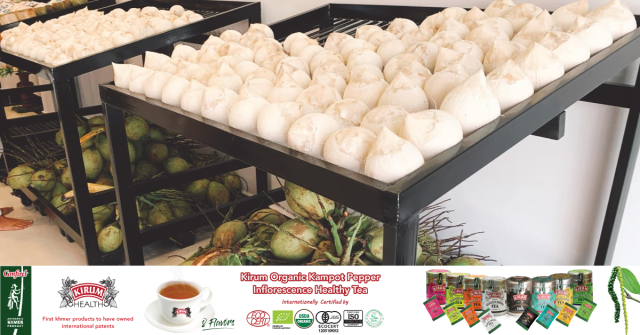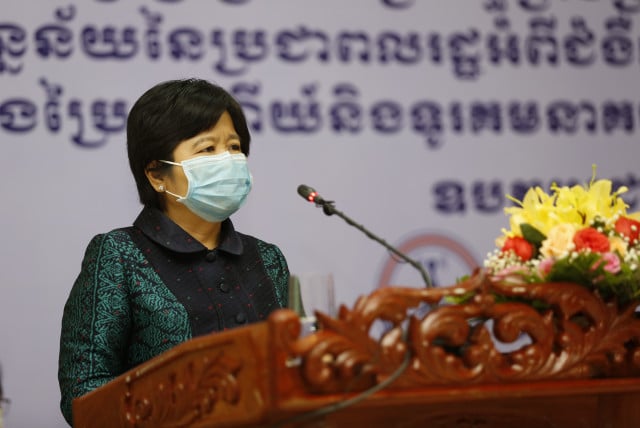Cambodian Fresh Coconuts Allowed to be Exported to China

- By Torn Chanritheara
- April 22, 2024 7:10 PM
PHNOM PENH – Cambodian fresh coconuts received the green light to be exported to China after all the required procedures have been completed.
Coconut becomes the fourth fruit to receive approval to be exported to China after banana, mango and Pailin longan.
The approval was announced after the conclusion of the 7th intergovernmental coordination committee on April 22, co-chaired by Deputy Prime Minister Sun Chanthol and Chinese Foreign Minister Wang Yi, who is paying an official visit to Cambodia from April 21 to 23.
Cambodia’s Ministry of Agriculture, Forestry and Fisheries (MAFF) and China’s General Administration of Customs on Sept. 15, 2023, signed the Protocol on Phytosanitary Requirement for importing Cambodian fresh coconuts to China after a month of assessing the risk of contaminants. China gave its approval for import in February.
MAFF’s Spokesperson Im Rachna said five companies are allowed to export fresh coconut to China. She said one company has already partnered with a Chinese company to work on bilateral trade.
“The amount and when the fresh coconuts are exported will be determined between Cambodian companies and the Chinese counterpart,” she said.
China is one of the main importers of Cambodian agricultural products. In 2023, the country exported about 8.45 million metric tons of agricultural items to 75 countries and regions, making an income of $4.3 billion.
Key products include rice, cassava, rubber, pepper and cashew nuts.
At the end of the meeting, three agreements were also signed. These were the exchange of letters on the Chinese subsidy for phase II of rural water supply, the certificate of handover and receipt of the Cambodian agricultural development master plan, and the protocol concerning production and hygiene requirements for semi-finished dog food products made from cow hides and intended for export from Cambodia to China.
Cambodia also received the diary of the Kingdom of Chenla about the territory, traditions and customs which was translated into Khmer.
Chhum Chantha contributed to the story.















